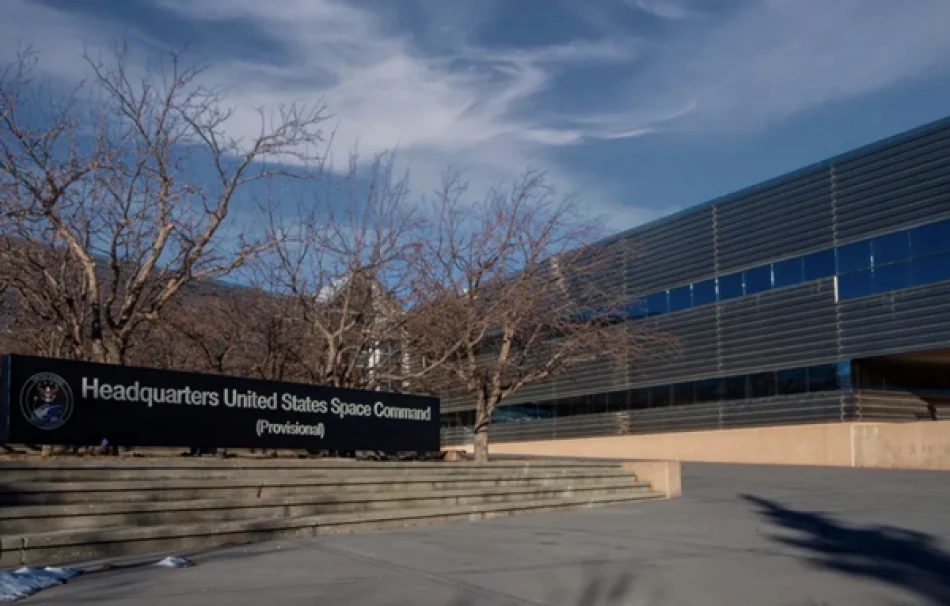
Trump Considers Reshuffling US Space Command Leadership
Trump Reverses Biden Decision, Moving Space Command Headquarters to Alabama
President Donald Trump is set to announce Tuesday that U.S. Space Command will relocate its permanent headquarters to Alabama, overturning a Biden administration decision to keep the critical military unit at its temporary base in Colorado. The move ends a four-year political and economic tug-of-war between two states vying for one of the military's most strategically important commands.
Strategic Shift Returns Space Operations to Historic Hub
The decision places Space Command at Redstone Arsenal in Huntsville, Alabama—a city dubbed "Rocket City" for its foundational role in America's space program. Trump is expected to make the announcement Tuesday afternoon, with the Pentagon preparing a live broadcast of what it describes as a "U.S. Space Command Headquarters announcement."
White House Press Secretary Caroline Leavitt teased the move as an "exciting announcement" related to the Department of Defense, though she provided no specifics ahead of the formal reveal.
Alabama's Space Legacy Gives It Natural Advantage
Huntsville's selection leverages decades of space and defense infrastructure already in place. The city houses the Army's Redstone Arsenal, NASA's Marshall Space Flight Center, and the Army's Space and Missile Defense Command. This concentration of space-related expertise and facilities made it a logical choice when the Air Force initially selected Huntsville as the preferred location in 2021.
That original selection followed field visits to six states, with evaluators comparing factors including infrastructure capacity, community support, and costs to the Department of Defense. Alabama emerged as the clear winner on technical merits, making Biden's decision to keep the command in Colorado appear more politically motivated than strategically sound.
Economic and Political Stakes Drive Interstate Competition
The headquarters location carries substantial economic implications for the winning state. Space Command oversees critical military operations including satellite navigation, inter-force communications, and missile launch warning systems—functions that require significant personnel and contractor support.
Both Alabama and Colorado officials have lobbied intensively for the command, recognizing that hosting such a facility brings high-paying jobs, federal investment, and long-term economic stability. The competition reflects broader trends in how states compete for federal military installations, particularly as space becomes an increasingly important domain for national security.
Reversing Biden's Colorado Decision
The Biden administration's choice to maintain Space Command's temporary location in Colorado Springs raised questions about whether political considerations outweighed military efficiency. Colorado's status as a competitive swing state, compared to reliably Republican Alabama, fueled speculation that electoral politics influenced the decision.
Trump's reversal suggests his administration prioritizes placing military assets where they can operate most effectively, regardless of political optics. Alabama's existing space infrastructure and lower operational costs provide clear advantages over starting fresh in Colorado.
Strategic Implications for Space Domain Leadership
The move signals Trump's commitment to strengthening America's space capabilities as competition with China and Russia intensifies. Consolidating space operations in a location with established expertise and infrastructure could accelerate development of new space-based defense systems and improve coordination between military and civilian space programs.
Space Command's mission has grown increasingly critical as adversaries develop anti-satellite weapons and space-based threats. Housing the command alongside NASA's Marshall Space Flight Center and Army space units creates opportunities for enhanced collaboration and faster technology development.
For Alabama, the decision validates years of investment in space-related education, workforce development, and infrastructure. The state's ability to attract and retain the command demonstrates how strategic planning and consistent investment in specialized capabilities can pay long-term dividends in federal competition.
Most Viewed News

 Layla Al Mansoori
Layla Al Mansoori






